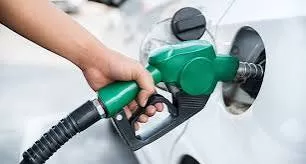
OPEC BLAMES HIGH FUEL PRICES IN NIGERIA ON GOVT IMPOSED TAXES
Nigeria’s fuel price hike has sparked widespread concerns, with many pointing fingers at oil producers, particularly local operators like Dangote Refinery.
However, OPEC Secretary General, Haitham Al Ghais, has set the record straight, revealing that the real reasons behind high fuel prices lie elsewhere—primarily in taxes imposed by governments, including those of major oil-consuming nations.
In an article published on Tuesday, Al Ghais explained that crude oil and its derivatives form the backbone of global industries, powering everything from transportation to pharmaceuticals.
While many assume that rising oil prices directly benefit oil producers at the expense of consumers, the OPEC chief debunked this myth, noting that oil-producing nations are not the primary beneficiaries of retail fuel sales.
“Revenues are often generated, but they are predominantly earned by major oil-consuming countries through taxation,” Al Ghais highlighted. The Secretary General emphasized that countries within the OECD (Organisation for Economic Co-operation and Development) earn substantially more from the retail sale of petroleum products than OPEC member countries make from the sale of crude oil itself.
Between 2019 and 2023, OECD nations earned approximately $1.915 trillion more annually than OPEC nations from petroleum products. In 2023 alone, taxes accounted for around 44% of the final retail price of petroleum products in OECD countries, and in certain European countries, this figure exceeded 50%.
For Nigerian consumers, this highlights that the high cost of fuel at the pump is not merely a reflection of crude oil prices or refinery margins. Instead, a significant portion of what consumers pay is directed towards government taxes. “It is important to recognize that the price paid by consumers at the pump is determined by multiple factors, including crude oil prices, refining, transportation, and, notably, taxes,” Al Ghais pointed out.
 Premium News
Premium News